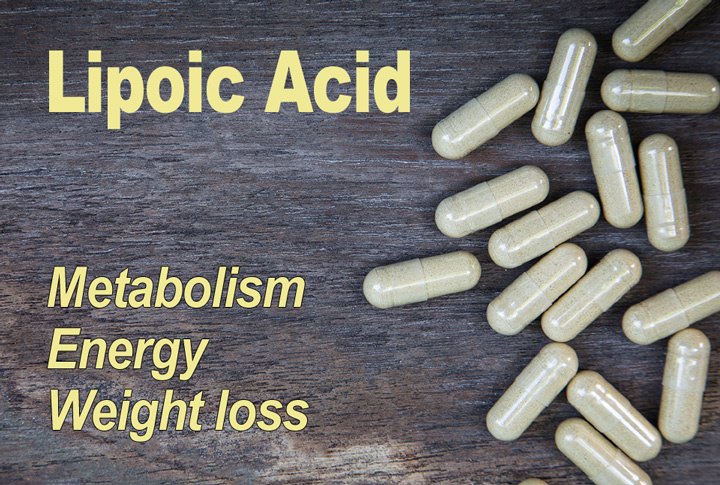A 2020 study examining whether Lipoic Acid supplementation could decrease elevated plasma triglycerides in overweight adults discovered a secondary benefit: weight loss.
The study, conducted by researchers at Oregon State University and Oregon Health & Science University, also found Lipoic Acid lowered inflammation markers in the test subjects.
The research, published in the Journal of Nutrition, analyzed the effects of daily doses of Lipoic Acid supplements on 31 people, and compared results with a similarly-sized control group that received a placebo.
Lipoic Acid defined
Lipoic Acid is an antioxidant—not to be confused with Linoleic Acid or Linolenic Acid, which are essential fatty acids.
It is produced naturally in animals, and is essential for aerobic metabolism.
Lipoic Acid, also known by its full scientific name Alpha-Lipoic Acid, and frequently abbreviated as simply ALA, provides the body with broad spectrum antioxidant support and extends the life of other antioxidants—recharging them so that they can continue to quench free radicals in the body.
The body generally produces enough Lipoic Acid to supply the enzymes whose proper function requires it. When taken as a dietary supplement, Lipoic Acid displays additional properties that might be unrelated to the function in the mitochondria.
According the the Linus Pauling Institute, “Lipoic Acid may also trigger antioxidant defense, enhance cellular glucose uptake, and modulate the activity of various cell-signaling molecules.”
All these factors make it a possible complementary treatment for people with diabetes, heart disease and age-related cognitive decline.
Study details
To conduct the research, study participants were given a substantial dose—600 milligrams–of Lipoic Acid for a period of 24 weeks.
The results of the study were somewhat surprising to the researchers: While having a limited effect on decreasing triglycerides, the Lipoic Acid had a considerable effect on weight loss. The data clearly showed a loss in body weight and body fat in people taking the Lipoic Acid supplements.
“The effect of Lipoic Acid supplements on blood lipids was limited,” said Gerd Bobe, a Linus Pauling Institute scientist who collaborated on the study. “But people who lost weight on Lipoic Acid also reduced their blood triglyceride levels—that effect was clear.”
The results were most notable for women and in the heaviest participants.
Other effects of the Lipoic Acid supplements were measurable as well.
“By the end of the study, some markers of inflammation declined,” the researchers wrote. “The findings also suggest that Lipoic Acid supplementation provides a mild reduction in oxidative stress. It is not a perfect panacea, but our results show that Lipoic Acid supplements can be beneficial.”
The Oregon State University study addressed two issues commonly ignored by previous human trials:
Many existing clinical studies using Lipoic Acid have focused on volunteers with pre-existing conditions, such as diabetes. This made it difficult to determine if Lipoic Asupplements simply act as a disease treatment or have other beneficial health effects.
The second issue was the actual formulation of the supplement. Previous studies utilized the “S” form of Lipoic Acid—a product of industrial synthesis, not found in nature.
The Oregon State University study only used the “R” form of lipoic acid—the form found in the body naturally.
Lipoic Acid (or Alpha Lipoic Acid) is just one of the many fat-burning nutrients found in Opti-Mito-Force from Optimal Health Systems.
The Opti-Mito-Force formula is designed to stimulate growth of new mitochondria, which promotes energy production and weight loss.
Learn more by clicking the banner ad on this page, or by visiting the product info page here.
– – –
Sources: The Journal of Nutrition, Oregon State University newsroom, Linus Pauling Institute.


